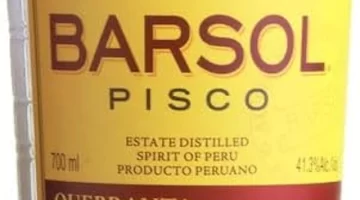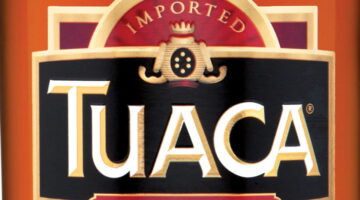The Story of Barsol Pisco
Travel Distilled discovers the story of Barsol Pisco, a premium brand of the Peruvian spirit pisco, from its origins to its range of products.
 Barsol Pisco, a premium Peruvian pisco brand, is celebrated for its dedication to tradition, quality, and the rich heritage of pisco production. Pisco, a grape-based spirit, is deeply rooted in the history and culture of Peru, and Barsol has become one of the most respected names in the industry. Its story is one of passion, craftsmanship, and a commitment to preserving the authenticity of this iconic spirit.
Barsol Pisco, a premium Peruvian pisco brand, is celebrated for its dedication to tradition, quality, and the rich heritage of pisco production. Pisco, a grape-based spirit, is deeply rooted in the history and culture of Peru, and Barsol has become one of the most respected names in the industry. Its story is one of passion, craftsmanship, and a commitment to preserving the authenticity of this iconic spirit.
Origins of Pisco
Pisco has a long and storied history in Peru, dating back to the 16th century when Spanish settlers introduced grapevines to the region. The coastal valleys of Peru, with their fertile soil and ideal climate, proved to be perfect for grape cultivation. By the 17th century, Peruvian settlers began distilling wine into a clear, aromatic spirit, which they named pisco after the port town of Pisco, a hub for trade and distribution.

Pisco quickly became a beloved spirit in Peru and beyond, but its production faced challenges over the centuries, including competition from other spirits and periods of decline. However, in recent decades, pisco has experienced a resurgence, both in Peru and internationally, thanks to the efforts of producers like Barsol.
The Birth of Barsol Pisco
Barsol Pisco was founded in the early 2000s by Diego Loret de Mola, a Peruvian entrepreneur with a deep appreciation for his country’s pisco-making traditions. Loret de Mola sought to create a pisco that would honor the spirit’s heritage while meeting the highest standards of quality. He partnered with master distillers and viticulturists in the Ica Valley, one of Peru’s most renowned pisco-producing regions, to bring his vision to life.
The name “Barsol” is derived from the Quechua words bara (sun) and sol (sun), reflecting the brand’s connection to the sun-drenched vineyards of Peru. This connection to the land and its natural resources is central to Barsol’s philosophy.
Craftsmanship and Tradition
Barsol Pisco is made using traditional methods that have been passed down through generations. The process begins with the careful selection of grapes, which are grown in the Ica Valley’s arid, mineral-rich soil. Barsol uses only pisco grapes, a category of eight specific grape varieties approved for pisco production in Peru. These include aromatic varieties like Quebranta, Italia, and Moscatel, each contributing unique flavors to the final product.
The grapes are hand-harvested and pressed to extract their juice, which is then fermented in stainless steel tanks to preserve the natural flavors of the fruit. The fermented wine is distilled in copper pot stills, a method that allows for precise control over the distillation process and ensures a smooth, high-quality spirit. Unlike other spirits, pisco is never aged in wood, allowing the pure essence of the grapes to shine through.
The Barsol Range
Barsol offers a range of piscos, each showcasing the distinct characteristics of the grapes used:
1. Barsol Quebranta: Made from the non-aromatic Quebranta grape, this pisco is smooth and earthy, with notes of banana and vanilla.
2. Barsol Italia: Crafted from the aromatic Italia grape, this pisco is floral and fruity, with hints of peach and citrus.
3. Barsol Acholado: A blend of Quebranta and Italia grapes, this pisco balances earthy and floral notes, creating a complex and versatile spirit.
4. Barsol Mosto Verde: Made from partially fermented grape must, this pisco is rich and velvety, with a slightly sweet finish.
Cultural Impact and Global Recognition
Barsol Pisco has played a significant role in elevating the profile of Peruvian pisco on the global stage. The brand’s commitment to quality and authenticity has earned it numerous awards and accolades, including recognition at international spirits competitions. Barsol has also become a favorite among bartenders and mixologists, who appreciate its versatility in classic cocktails like the Pisco Sour, Chilcano, and Pisco Punch.
In Peru, Barsol is celebrated as a symbol of national pride, representing the country’s rich cultural heritage and artisanal traditions. The brand’s success has helped spark a renewed interest in pisco, both domestically and internationally, and has inspired a new generation of pisco producers.
Sustainability and Community
Barsol is committed to sustainable practices and supporting the local community. The brand works closely with local farmers to ensure fair wages and environmentally responsible farming methods. Barsol also promotes the preservation of traditional pisco-making techniques, ensuring that this cultural heritage is passed down to future generations.
Conclusion
Barsol Pisco is more than just a spirit; it is a celebration of Peru’s history, culture, and craftsmanship. From its sun-drenched vineyards to its copper pot stills, every aspect of Barsol’s production reflects a deep respect for tradition and a commitment to quality. Whether enjoyed neat, in a cocktail, or as part of a toast, Barsol Pisco offers a taste of Peru’s soul, capturing the essence of its people and its land. Cheers to Barsol—a true ambassador of Peruvian pisco!











